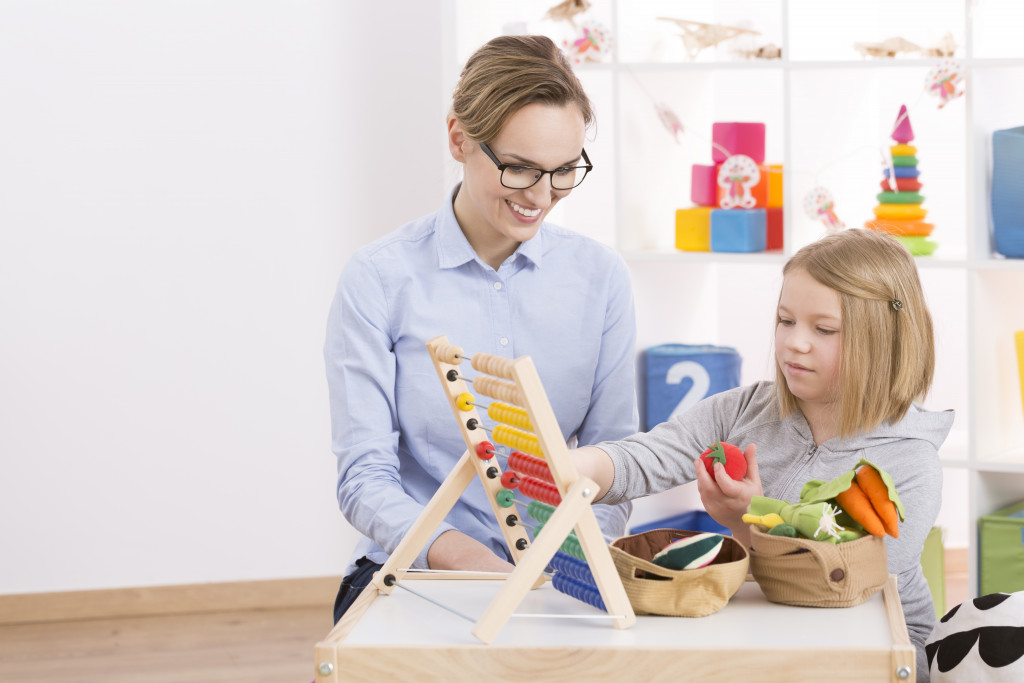• Cognitive development refers to how a person thinks, learns, perceives, remembers, and makes decisions.
• Cognitive development is essential as it helps reach full potential, build self-confidence and aid academic success.
• Parents can support cognitive development through after-school activities, encouraging exploration, play, and reading together.
• Cognitive development is vital to childhood growth and learning, and proper support is essential.
Cognitive development is a critical component of childhood growth and learning. Parents, teachers, and caregivers must understand the basics to support children as they grow and learn. Here’s what you need to know about cognitive development among children.
What is Cognitive Development?
Cognitive development refers to how a person thinks, learns, perceives, remembers, solves problems, and makes decisions. It involves using mental processes such as attention, memory, language, decision-making, problem-solving, creativity, and abstract thinking. During childhood development, these skills develop rapidly from birth through adolescence.
Why Is Cognitive Development Important?
Cognitive development is significant because it helps a child reach their full potential. It also encourages self-confidence by providing the necessary skills for effective communication and problem-solving to serve them well as adults. Furthermore, cognitive development aids in their academic success by helping them acquire knowledge through observation and exploration of their environment.
The Stages of Cognitive Development
Cognitive development occurs in stages as a child grows. These stages were first identified by Swiss psychologist Jean Piaget in his theory of cognitive development. He identified four stages, threof which can be found in early childhood. Here are those three stages that you should definitely know as a parent.
Sensorimotor Stage
Infants interact with the world through their senses and movements during this stage. They learn about cause-and-effect relationships by exploring objects around them through tasting, touching, listening, smelling, seeing, and moving them around. They also start to recognize patterns such as sounds or facial expressions indicating something pleasant or unpleasant.
Preoperational Stage
During this stage, children learn language skills like speaking, recognizing words on paper or screens, forming basic sentences with nouns and verbs, etc.; This is also when children start learning about symbols like numbers or letters, which helps them think more abstractly about things they cannot see or touch directly but still exist in some form such as numbers or stories, etc., They also start to think logically during this stage but are not yet capable of solving complex problems.
Concrete Operational Stage
During this stage, children become better at thinking logically and solving problems using concrete objects they can see or touch directly, such as puzzles or math equations, etc., They can now understand scientific concepts like gravity or conservation of mass, etc., Children during this stage can draw conclusions based on given data without needing prior knowledge about the topic nor do they need direct experience with it either.
How Can Parents Do to Support Cognitive Development?
There are various ways in which parents can support their children’s cognitive development. Here are some tips:
After School Activities
It’s great to let your child learn various concepts in a fun way. A professional after-school care service can do this for you. They can offer sports, music, art, and other age-appropriate activities. All of these are crucial to your child’s development.
Encourage Exploration
Let your child explore their environment through outdoor play or pretend play. This helps them to learn about their environment in a fun way. Encouraging your child to observe and ask questions will also help stimulate their cognitive development.
Read With Your Child
Reading to your child exposes them to new words, information, and concepts. It also encourages them to think critically about ideas presented in the stories they read. You must provide a safe space where they can ask questions without feeling intimidated.
Encourage Play
Most children learn by playing. Encourage them to use their imagination and playfully explore different objects. This helps children develop problem-solving skills and encourages them to think critically about their environment. Moreover, playing games helps them learn to follow the rules, cooperate with others, and develop their communication skills.
Motivation
Lastly, praising your child when they do something right or tries something new is essential. This will help them feel more confident and encourages them to learn further.
Cognitive development is critical to childhood growth and learning, and providing proper support is vital. By understanding the stages of cognitive development and how to encourage exploration, parents can help their children reach their full potential. Children can make sense of their world with the right environment and guidance and grow into successful adults.



